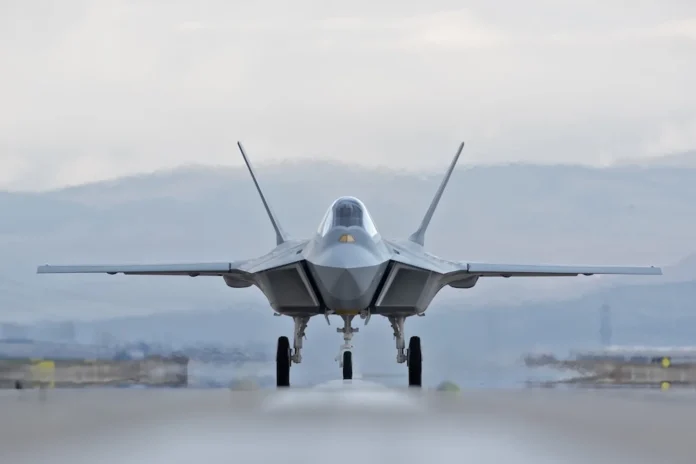– Mohammed Talha Siddi Bapa
At the Indo Defence Expo & Forum 2025, held in Jakarta from 11 to 14 June, Indonesia signed a landmark agreement with Türkiye to acquire 48 KAAN fifth-generation fighter jets over the next decade. The $10 billion deal marks Türkiye’s first international export of its indigenously developed stealth aircraft and Indonesia’s most ambitious step yet toward defence modernisation and strategic diversification.
The agreement includes not just procurement but a broader strategic partnership: early production will take place in Türkiye, but with gradual technology transfer, local assembly, and potential joint production in Indonesia. The first batch of aircraft is expected to be delivered by 2028, with serial production and training programmes to follow. Officials from both countries, including President Erdoğan and President Prabowo Subianto, witnessed the signing – underlining the geopolitical weight of the accord.
This breakthrough reflects a quiet but profound transformation across the Muslim world. Countries such as Türkiye, Indonesia, Pakistan, Malaysia, and Qatar are increasingly shifting away from dependency on traditional Western or Russian defence suppliers. Instead, they are forging intra-Muslim defence ties, anchored in mutual respect, strategic trust, and shared technological goals.
Türkiye’s KAAN project – a fifth-generation fighter designed by Turkish Aerospace Industries (TAI) – has become a symbol of this shift. Indonesia’s decision to partner with Türkiye complements its participation in the South Korean KF-21 programme, reinforcing Jakarta’s determination to build a multi-vector, sovereign defence ecosystem.
Other Muslim-majority countries are following suit. Pakistan and Türkiye continue to deepen naval cooperation, including joint work on MILGEM-class frigates and drones. Malaysia is co-producing Turkish drones to reduce its dependence on imports and boost domestic manufacturing capacity. Qatar, meanwhile, has invested significantly in Türkiye’s defence industry and serves as a key financial partner.
These partnerships are not merely transactional. They represent a conscious effort to reclaim strategic autonomy, break free from geopolitical dependencies, and rebuild technological sovereignty in the Muslim world. Unlike Western arms deals – often tied to political conditions or strategic alignment – these collaborations emphasise mutual capacity-building, shared values, and a long-term vision of self-reliance.
Importantly, this rising defence cooperation need not fuel new rivalries. If anchored in ethical principles and peaceful intent, it can contribute to a multipolar world order where Muslim nations are not passive clients of global powers but active contributors to security, innovation, and stability.
With the KAAN jet now poised for flight across Southeast Asia, and Muslim-majority countries increasingly aligning their technological futures, the message is clear: the age of dependency is giving way to dignity.




